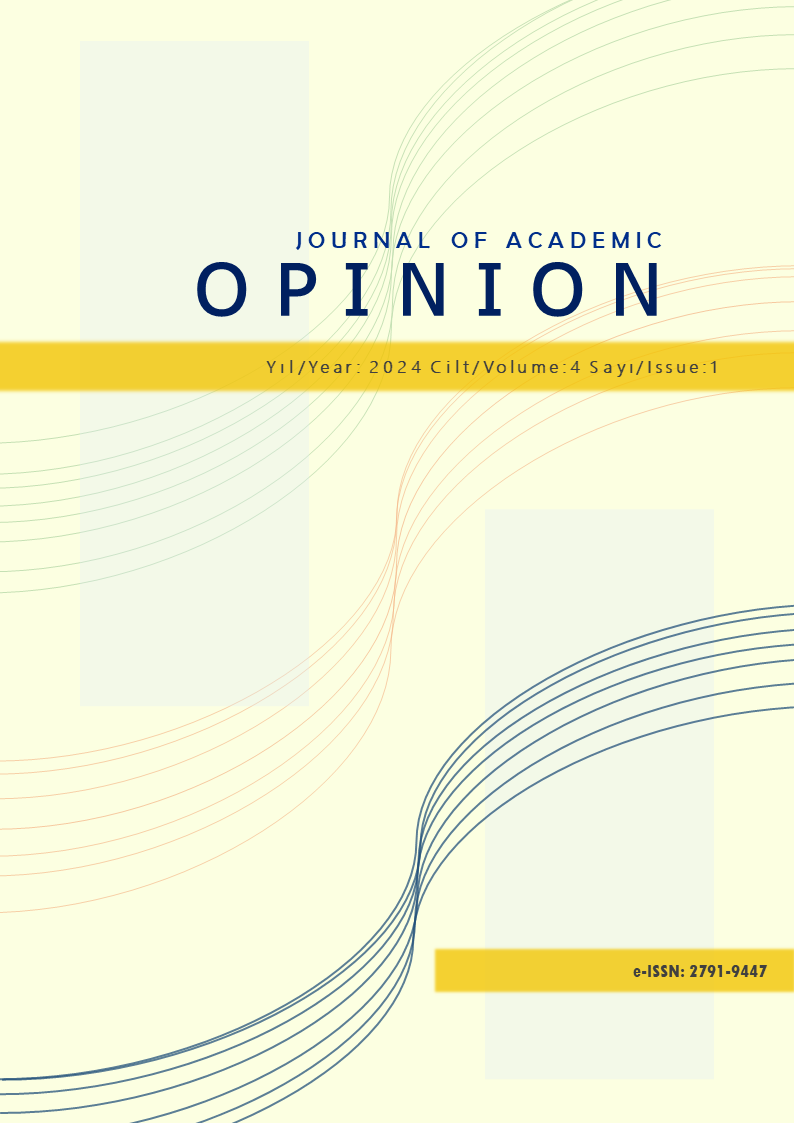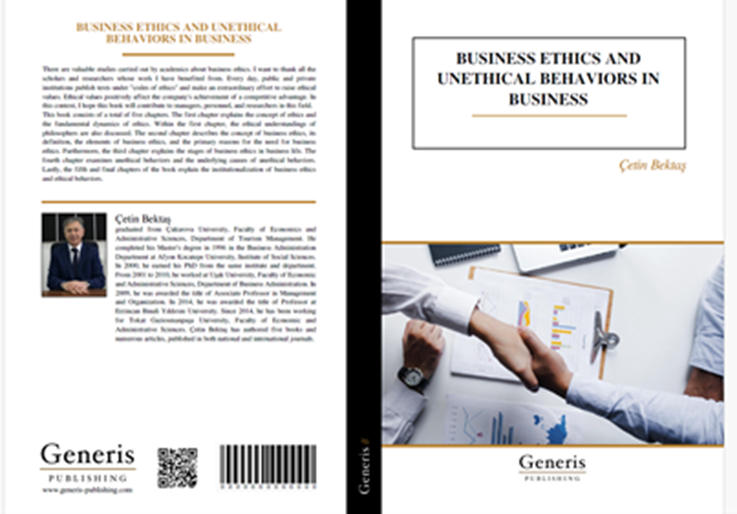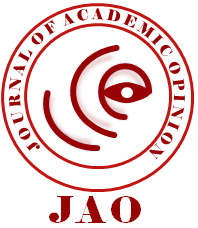A Research on Consumer Typologies in Edutainment Parks from an Experiential Marketing Perspective
Keywords:
Experiential Marketing, Edutainment Parks, Satisfaction, Revisit IntentionAbstract
The aim of this study is to reveal the typologies of child consumers visiting large-scale edutainment parks in shopping malls in terms of experiential marketing from the parents' perspective. The study was designed according to quantitative research methodology. In the study, 404 parents who visited an edutainment park with their children were reached by using the convenience sampling technique. Survey technique was used to collect data. Explanatory factor analysis, cluster analysis, one-way analysis of variance, Chi-square analysis and descriptive statistics were used to analyze the data. Factor analysis results show that the experience offered in the edutainment park consists of three dimensions: Entertainment and aesthetics, escape and education. Cluster analysis results show that participants are grouped into three clusters according to these dimensions. Experience amorous think that the experience offered in the park has a very high educational contribution to their children and that their children have a lot of fun in the park. According to experience amorous, their children had a very different experience from their daily routine in the park. The second group of experience lovers think that the educational contribution and entertaining nature of the experience offered in the park is at a high level. According to experience lovers, their children had an experience different from their daily routine. The laggards group, on the other hand, positions behind experience amorous and experience lovers in terms of experiential marketing tendencies and displays a more indecisive profile. There are also significant differences between all three clusters in terms of satisfaction and revisiting intentions.
References
Addis, M. (2005). New Technologies and Cultural Consumption–Edutainment is born! European Journal of Marketing, 39(7/8), 1-13. Doi:10.2139/ssrn.319503
Akel, G. (2020). Postmodern Dönemde Deneyim Ekonomisi ve Turizm Deneyimi Unsurlarının Memnuniyet ve Sadakat ile İlişkisi: Tema Parkı ve Otelinde Konaklayan Farklı Kültürden Ziyaretçiler Üzerinde Bir Uygulama. Doktora Tezi. Aydın: Aydın Adnan Menderes Üniversitesi Sosyal Bilimler Enstitüsü.
Atasoy, A. ve Marşap, A. (2019). Deneyimsel Pazarlama Unsurları ve Sadakat Arasındaki İlişkide Müşteri Deneyiminin ve Tüketicilerin Algıladığı Faydanın Aracılık Rolü: Alışveriş Merkezlerinde Bir Araştırma. İşletme Araştırmaları Dergisi, 3(11), 2140-2159. https://doi.org/10.20491/isarder.2019.730
Balloffet, P., Courvoisier, F. H. and Lagier, J. (2014). From Museum to Amusement Park: The Opportunities and Risks of Edutainment. International Journal of Arts Management, 16(2), 4-17. https://www.researchgate.net/profile/Joelle-Lagier/publication/281158815_From_Museum_to_Amusement_Park_The_Opportunities_and_Risks_of_Edutainment/links/
Batı, U. (2017). Markethink ya da Farkethink: Deneyimsel Pazarlama ve Duyusal Markalama. Kitap Kulubü Yayınları.
Birliraki, C., Stivaktakis, N., Chatziantoniou, A., Neroutsou, V., Zidianakis, E., Zidianaki, I., ... and Stephanidis, C. (2019). Interactive Edutainment: A Technologically Enhanced Theme Park. In HCI International 2019-Posters: 21st International Conference, July 26–31, 2019, Proceedings, Part III 21 içinde (s. 549-559). Orlando: Springer International Publishing.
Brakus, J. J., Schmitt, B. H. and Zarantonello, L. (2009). Brand Experience: What Is It? How Is It Measured? Does It Affect Loyalty?. Journal of Marketing, 73(3), 52-68. https://doi.org/10.1509/jmkg.73.3.52
Caru, A. and Cova, B. (2003). Revisiting Consumption Experience: A More Humble But Complete View of The Concept. Marketing Theory, 267-286. https://doi.org/10.1177/14705931030032004
Castorena, D. G. and Prado, J. A. D. (2013). A Mexican Edutainment Business Model: KidZania. Emerald Emerging Markets Case Studies, 3(5), 1-14. Doi: 10.1108/EEMCS-10-2013-0192
Chan, E. K. (2019). The Role of Personal Relevance in the Value Creation Process of Edutainment Consumption. Journal of Consumer Behaviour, 18, 190-204. https://doi.org/10.1002/cb.1757
Chuo, H. Y. and Heywood, J. L. (2006). Theme Park Visitors’ Dynamic Motivations. In Advances in hospitality and leisure (Vol. 2, pp. 73-90). Emerald Group Publishing Limited.
Coleman, D. (2023). Marka Deneyimi Yaratmak. Taner Gezer (Çev.) İstanbul: MediaCat Yayınları.
Ekici, R., Güven, A. ve Büyükdağ, N. (2017). Turizmde Yenilikçi Girişim: Tema Park Otel Örneği. The First International Congress on Future of Tourism: Innovation, Entrepreneurship Sustainability, 28-30 September 2017, (s.28-30), Mersin.
Emiroğlu, B. D. (2022). Motivation Sources of Theme Park Visitors and The Reasons to Visit the Park: A Systematic Literature Review. Journal of Turkish Tourism Research, 6(2), 411-433. Doi: 10.26677/TR1010.2022.999
Erdem, A. (2023). Deneyimsel Pazarlama Kavramının Bibliyometrik Analiz ile İncelenmesi. Emrah Sıtkı Yılmaz (Ed.). Dijitalleşme ve Pazarlama Araştırmaları içinde. (ss.117-130). Özgür Yayınları.
Feenstra, F., Muzellec, L., De Faultrier, B. and Boulay, J. (2015). Edutainment Experiences for Children in Retail Stores, From a Child’s Perspective. Journal of Retailing and Consumer Services, 26, 47-56. http://dx.doi.org/10.1016/j.jretconser.2015.05.004
Garrod, B. and Dowell, D. (2020). Experiential Marketing of an Underground. Tourism and Hospitality, 1-19. Doi:10.3390/tourhosp1010001
Geissler, G. L. and Rucks, C. T. (2011). The Overall Theme Park Experience: A Visitor Satisfaction Tracking Study. Journal of Vacation Marketing, 17(2), 127-138. https://doi.org/10.1177/1356766710392480
Göktuna Yaylacı, F. and Yaylacı, A. F. (2016). Understandings and Tendencies of Edutainment in Turkey: An Evaluation Based on Neil Postman’s Criticism on Education, Entertainment and Technology. Contemporary Educational Technology, 7(3), 241-263. https://dergipark.org.tr/en/download/article-file/252280
Graus, G., Kosaretsky, S., Kudryavtseva, A., Polivanova, K., Sivak, E. and Ivanov, I. (2021). Edutainment Centers as an Educational Phenomenon: The Case of KidZania. Voprosy Obrazovaniya / Educational Studies Moscow, 2, 139-152. Doi: 10.17323/1814–9545–2021–2–243–260
Gürhan, N. (2021). Bir Müzenin Dönüşümü: Öğrence Mekânı Olarak Mardin Müzesi. Uluslararası Toplum Araştırmaları Dergisi, 17(33), 565-594. https://doi.org/10.26466/opus.816832
Hertzman, E., Anderson, D. and Rowley, S. (2008) Edutainment Heritage Tourist Attractions: A Portrait of Visitors’ Experiences at Storyeum, Museum Management and Curatorship, 23(2), 155-175, Doi: 10.1080/09647770802012227
Kahya Canlı, S. ve Demirarslan, D. (2020). Çocuk Oyun Alanlarının Tarihi Gelişimi. Çocuk ve Gelişim Dergisi, 3(6), 60-75. https://dergipark.org.tr/en/download/article-file/1061705#723546]-1061705.pdf
Komarac, T., Ozretic-Dosen, D. and Skare, V. (2020) Managing Edutainment and Perceived Authenticity of Museum Visitor Experience: İnsights From Qualitative Study. Museum Management and Curatorship, 35(2), 160-181, Doi: 10.1080/09647775.2019.1630850
Krom, İ. (2019). Experiential Marketing and Online Consumer Engagement That Carry Your Brand to The Future: Legoland Case. Ö. Yılmaz (Ed.). New Trends in Management Studies içinde. (s. 149-164). Berlin: Peter Lang.
Malhotra, N. K. (2007). Marketing Research: An Applied Orientation. Prentice-Hall.
Nagash, M. and Shokry, M. (2020). Kids Edutainment Center. Journal of Critical Reviews, 7(8), 627-632. Doi: 10.31838/jcr.07.08.139
Naser Alsaid, K. and Ben Amor, N. (2020). Experiential Marketing Impact on Experiential Value and Customer Satisfaction: Case of Winter Wonderland Amusement Park in Saudi Arabia. Expert Journal of Marketing, 8(2), 118-128. https://marketing.expertjournals.com/ark:/16759/EJM_810alsaid118-128.pdf
Oh, H., Fiore, A. M. and Jeoung, M. (2007). Measuring Experience Economy Concepts: Tourism Applications. Journal of Travel Research, 46(2), 119-132. Doi: 10.1177/0047287507304039
Park, K. S., Reisinger, Y. and Park, C. S. (2009). Visitors' Motivation for Attending Theme Parks in Orlando, Florida. Event Management, 13(2), 83-101. Doi:10.3727/152599509789686308
Park, M. and Choi, S. (2020). Characteristics and Contents of Korean kids Theme Park: Analysis of Four Representative Cases. International Theme & Amusement Park Journal, 1(1), 30-43. https://seoul.edu/wp-content/uploads/2021/01/SamseobMinhee.pdf
Pikkemaat, B. and Schuckert, M. (2006). The New Customer in the Experience Economy – Implications for the Management of Theme Parks. K.Weiermair, H.Pechlaner, T. Bieger (Ed.), Time Shift, Leisure and Tourism içinde, (ss.233-247). https://www.researchgate.net/profile/Birgit-Pikkemaat/publication/270567755_The_New_Customer_in_the_Experience_Economy__Implications_for_the_Management_of_Theme_Parks/links/5c573fc2458515a4c7557865/The-New-Customer-in-the-Experience-Economy-Implications-for-the-Management-of-Theme-Parks.pdf
Pine, B. J. and Gilmore, J. H. (1998). Welcome to the experience Economy. Harvard Business Review, 76(4), 97-105. https://enlillebid.dk/mmd/wp-content/uploads/2012/03/Welcome-to-the-Experience-Economy-Pine-and-Gilmore.pdf
Rusman, N. S., Ismail, H. N. and Jaafar, S. M. R. S. (2019). Demand of Preschool Education by Alpha Generation on Edutainment Leisure in The City. International Journal of Built Environment and Sustainability, 6(1-2), 121-128. https://doi.org/10.11113/ijbes.v6.n1-2.391
Rusman, N.S. and Ismail, H.N. (2020). City Edutainment for Educational and Social Justice for Early Childhood. IOP Conference Series: Earth and Environmental Science, 447(1), 1-9. IOP Publishing. Doi:10.1088/1755-1315/447/1/012008
Sadachar, A. (2014). Indian Consumers’ Patronage Intention Toward Shopping Malls: Application of an Experience Economy Perspective. Doktora Tezi. Iowa: Iowa State University.
Schmitt, B. (1999) Experiential Marketing. Journal of Marketing Management, 15, 53-67. https://doi.org/10.1362/026725799784870496
Sit, K. J. (2010). Explaining the Experiential Consumption of Special Event Entertainment in Shopping Centres. Doktora Tezi. Toowoomba, Australia: University of Southern Queensland.
Snakers, E. and Zajdman, E. (2010). Does Experiential Marketing Affect The Behavior of Luxury Goods' Consumers? Yüksek Lisans Tezi. Sweden: Umeå Universitet.
Soto-Maciel, A. (2019). International Growth for the Concept of Children’s Edutainment: The Case of KidZania. P. Reyes-Mercado, G. J. Larios-. Hernandez (Ed.). Reverse entrepreneurship in Latin America: Internationalization from Emerging markets to developed economies içinde. (s.121-133). Switzerland: Palgrave Macmillan.
Yorulmazer, S. (2022). Tema Parklar Kapsamında Ziyaretçi Deneyiminin Değerlendirilmesi: Antalya The Land of Legends Örneği. Yüksek Lisans Tezi. Antalya: Akdeniz Üniversitesi Sosyal Bilimler Enstitüsü.
Zafeiroudi, A. and Kouthouris, C. (2023). Segmenting Visitors of a Greek Recreational Theme Park Using Factors That Motivate Attendance. Managing Sport and Leisure, 28(2), 120-134. Doi: 10.1080/23750472.2020.1860802
Zarantonello, L. and Schmitt, B. H. (2010). Using the Brand Experience Scale to Profile Consumers and Predict Consumer Behaviour. Journal of Brand Management, 17, 532-540. https://doi.org/10.1057/bm.2010.4
Downloads
Published
How to Cite
Issue
Section
License
Copyright (c) 2024 Journal of Academic Opinion

This work is licensed under a Creative Commons Attribution 4.0 International License.





